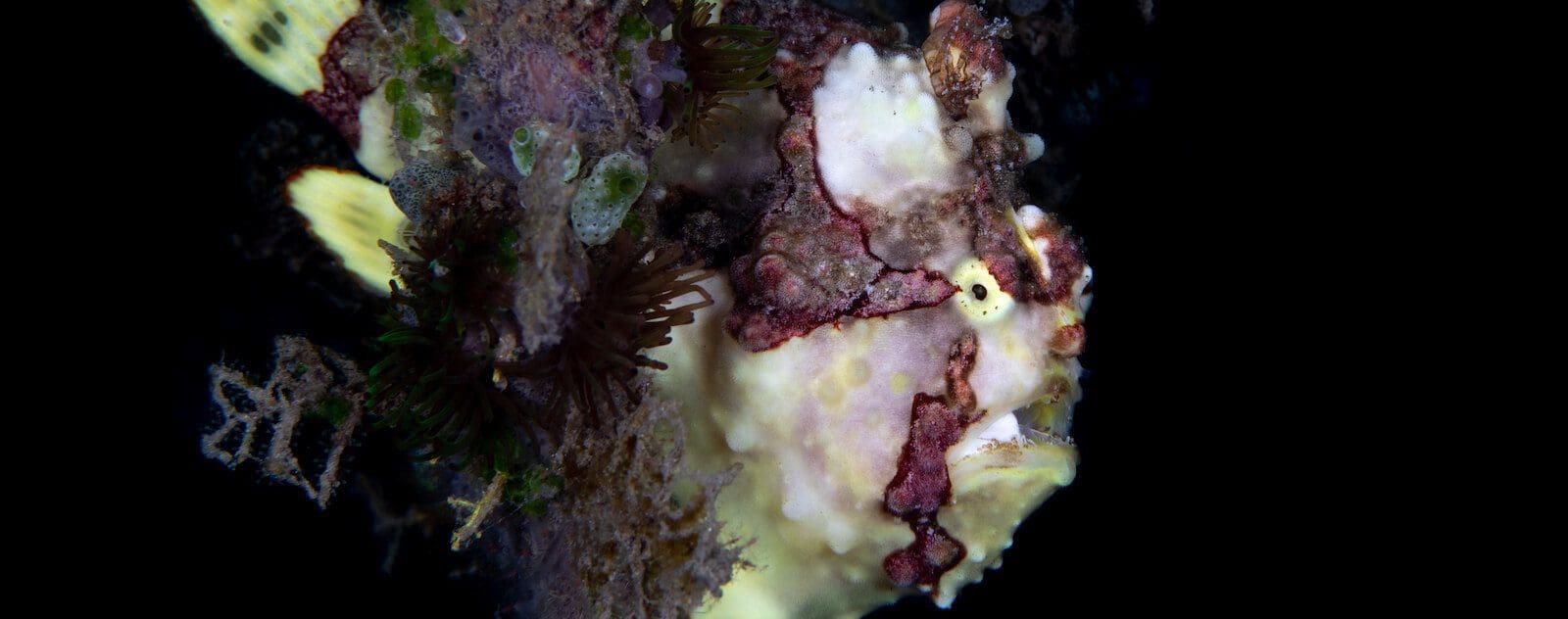Muck Diving in Lembeh and Iconic Critters of the Strait
Have you heard of muck diving? How about a hairy frogfish or a flamboyant cuttlefish? Yes, they really do exist! If you are new to muck diving and want to find out more, or if you are already a muck diver or an underwater photographer and want to learn more about the most iconic critters found in the Lembeh Strait – read on…
What is “Muck Diving”?
The term muck relates to the fine, black volcanic sediment which can be found at many of the dive sites in the Lembeh Strait. This black sand, combined with the nutrient rich waters of the Strait means that it is home to some of the rarest and most unusual marine life in the world – in fact, it is known as a “muck mecca” to many divers and has even been coined as the “Critter Capital of the World»!
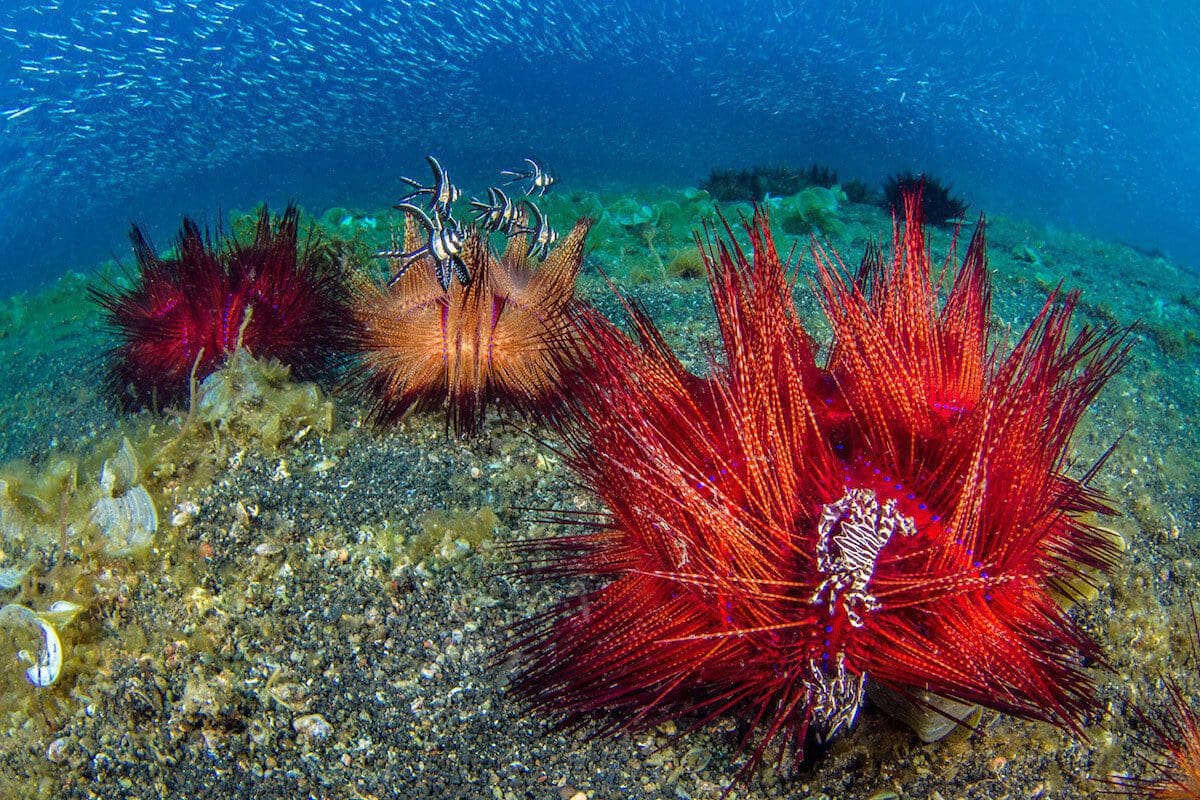
At our muck diving sites you’ll often find corals in the shallows which peter out as you descend down the black sand slopes. The slopes are punctuated by much smaller, occasional corals, sea urchins and individual anemones that sit on the sand. Due to lack of reef for the critters to take residence in, they are often “hiding in plain sight” – relying on their impressive camouflage skills to remain undetected by predators.
Many of our critters are extremely adaptable and where there is no coral they will utilize other items on the sand and turn it into their home. Natural debris such as coconut shells or tree branches are all fair game, as are bottles and man-made debris which has found it’s way into the ocean.
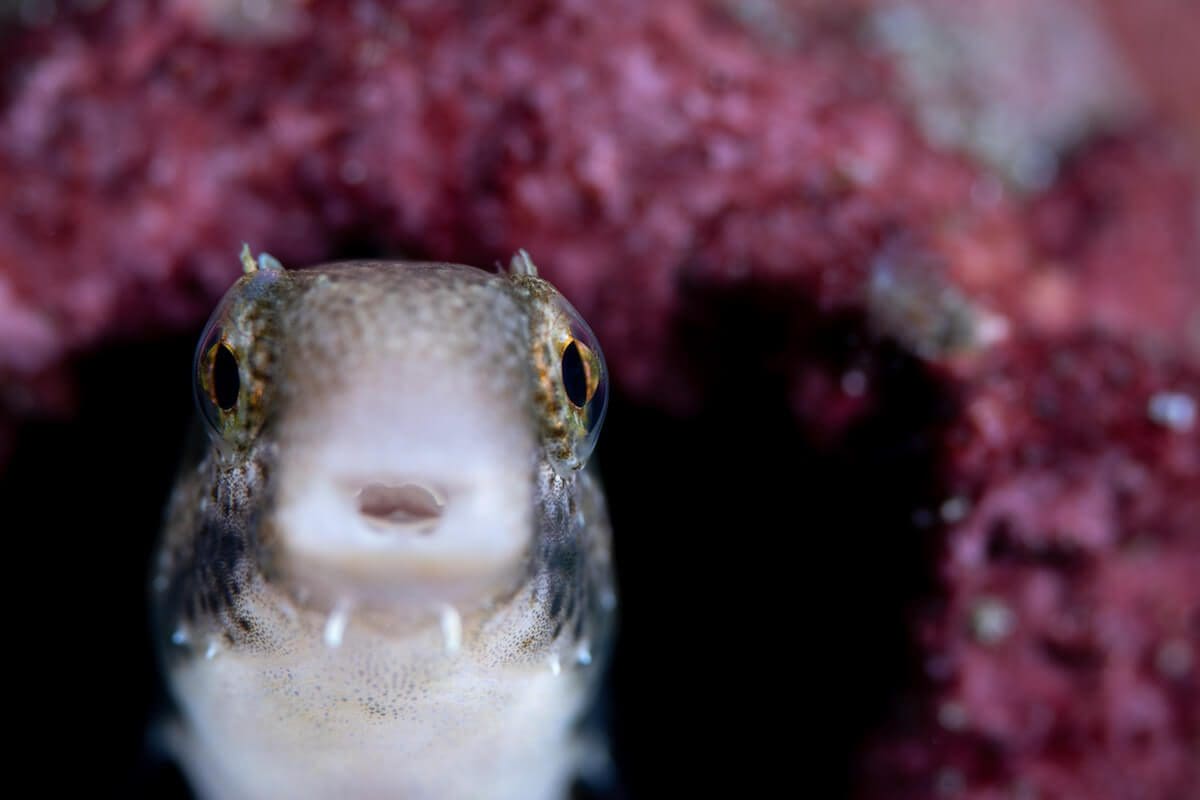
What can I Expect When Muck Diving in Lembeh?
When you first enter the water it may seem a little murky due to the extremely fine sediment which is easily stirred up. Give your eyes time to adjust and then the fun begins! Muck diving is all about going slow and taking your time to inspect everything you find carefully – you may be surprised by how much there is to see when you really start looking!
What Are the Iconic Critters of the Lembeh Strait?
There is no shortage of candidates for this title in Lembeh! It is impossible to list all of the famous critters which we find so here are a few of our favorites…
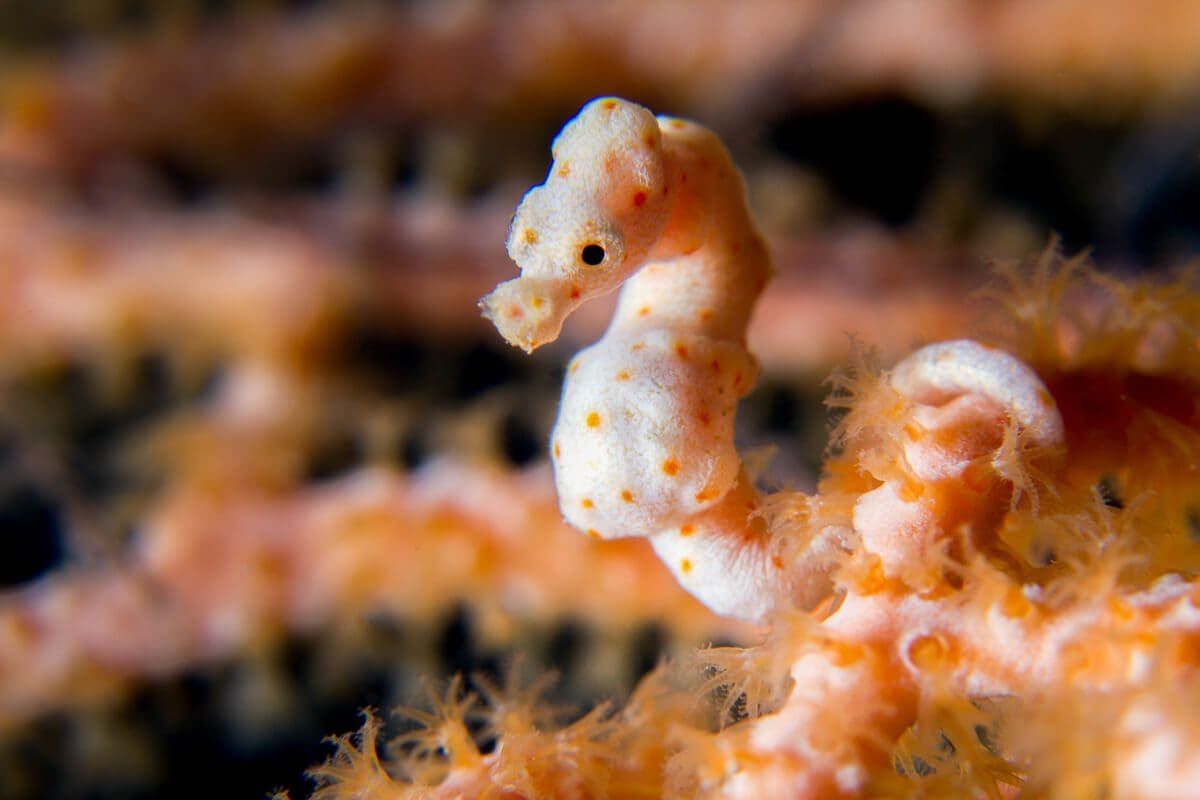
Pygmy Seahorse (Hippocampus Sp.)
At Lembeh we don’t just have one species of pygmy seahorse – we have three! Look carefully among the sea fans for the bargibanti and Denise’s species and we often find the Pontohi species too. These tiny iconic critters are just a few centimeters and are still a relatively new species only discovered in the latter half of the 20th century. Did you know that the Denise’s pygmy seahorse was discovered right here in the Lembeh Strait?
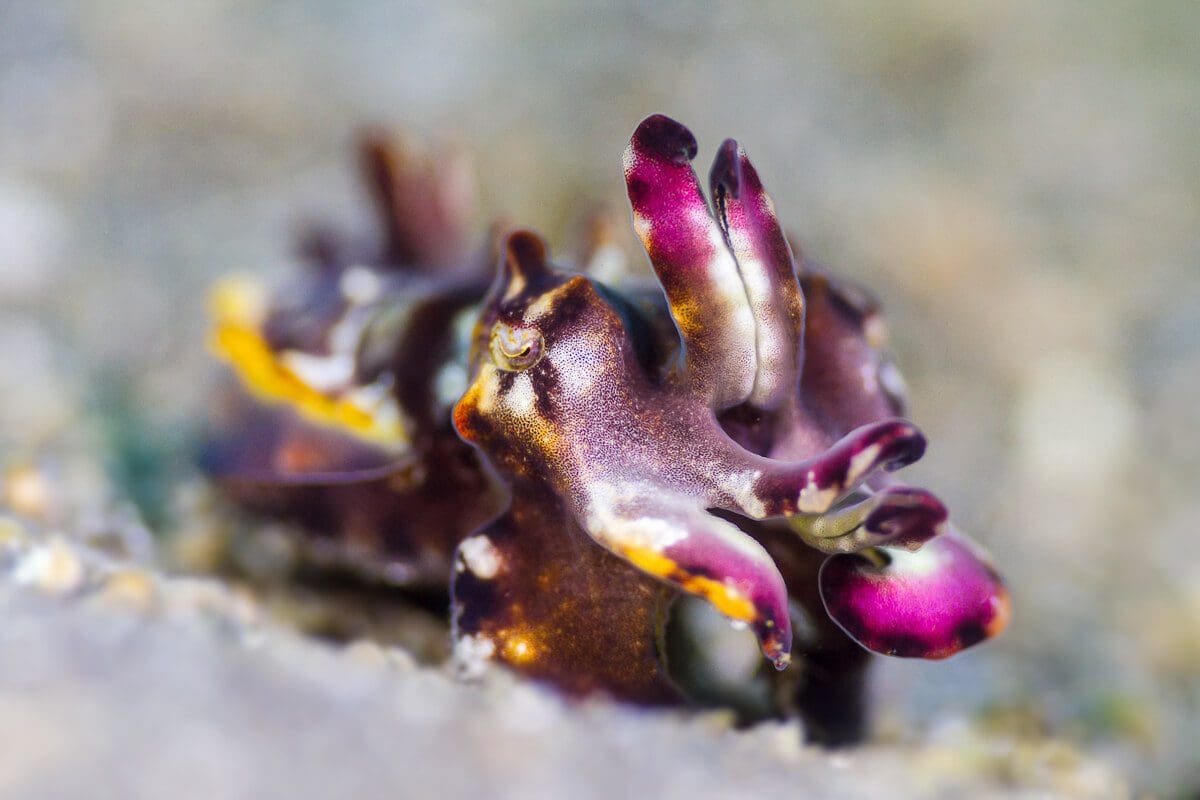
Flamboyant Cuttlefish (Metasepia pfefferi)
Small, colorful and yet a ferocious hunter, this iconic critter can be found “walking” along the bottom. When threatened it will flash vibrant shades of orange, purple, yellow and white to warn away predators. This species is often found in pairs so if you spot one, look around for its partner – they are frequently nearby.
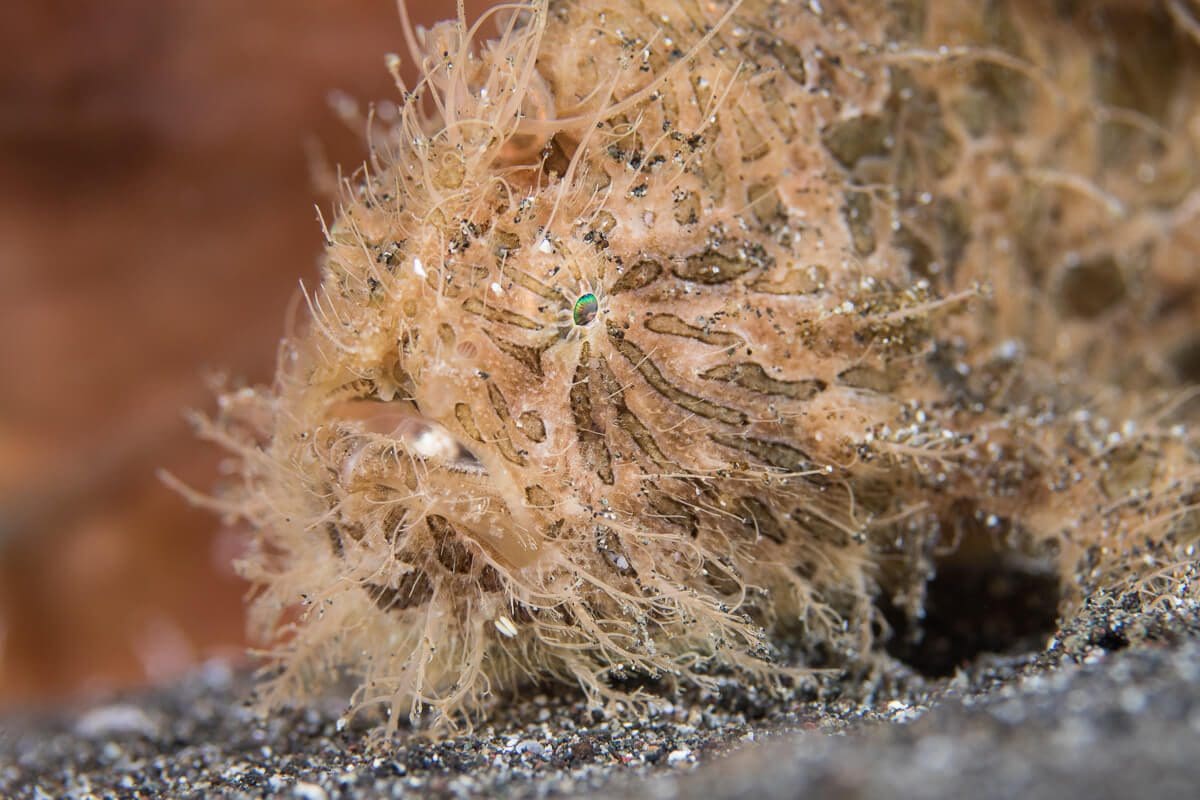
Hairy Frogfish (Antennarius striatus)
The hairy frogfish is a highlight which everyone wants to see when they are muck diving in Lembeh. Hairy frogfish have excellent camouflage – especially at dive sites where seagrass or seaweed and algae can be found. The hairy frogfish (like other frogfish species) uses a rod and a lure to entice prey into its strike zone. Once the prey is close enough the frogfish will pounce and devour its victim whole. The Lembeh Strait is home to eight different species of frogfish including the giant frogfish and the painted frogfish (pictured in the title image above taken by Lilian Koh).
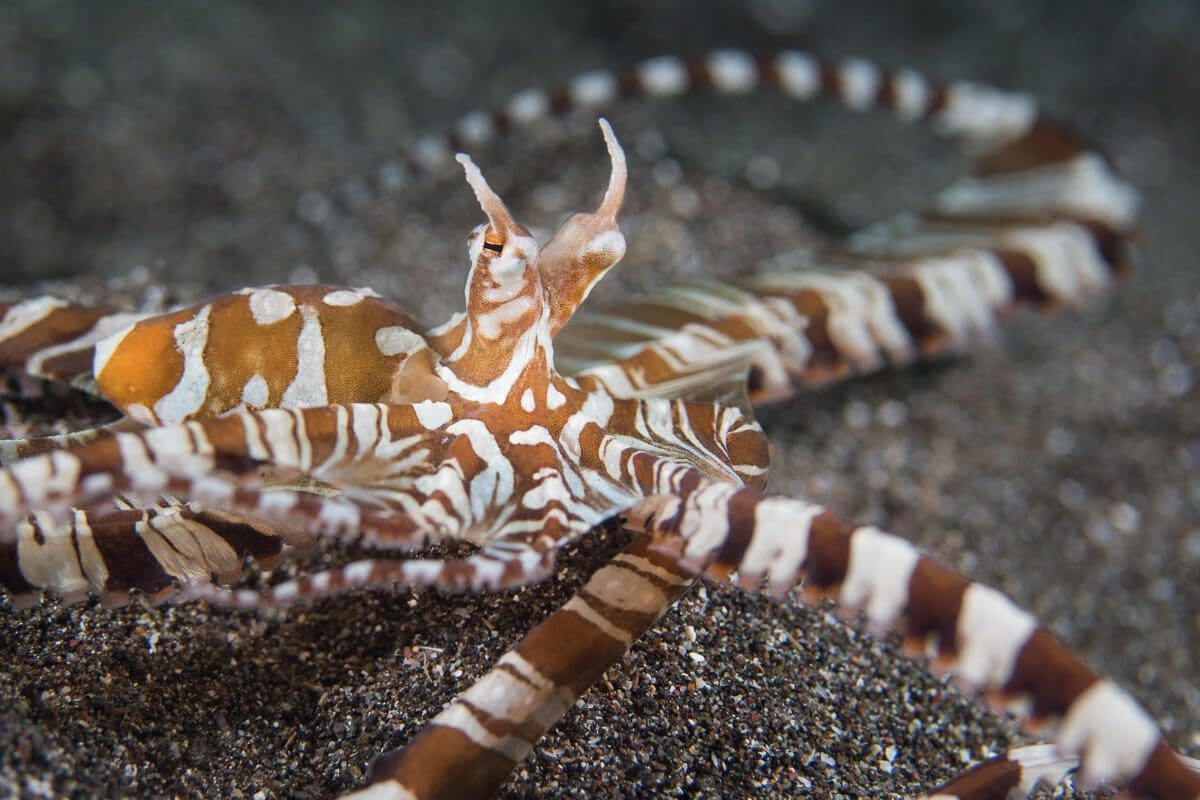
Wunderpus Octopus (Wunderpus photogenicus)
When it comes to octopus, the Lembeh Strait has an abundance of species. The wunderpus is closely related to the mimic octopus which is well known for its suggested ability to mimic other sea creatures. The wunderpus has longer eye-stalks than the mimic and a more red-brown coloration. Its mantle is also missing the continuous white edging which is found on the mantle of a mimic. Other iconic octopus species found when muck diving in Lembeh include the coconut octopus, hairy octopus and the blue ring octopus (pictured below).
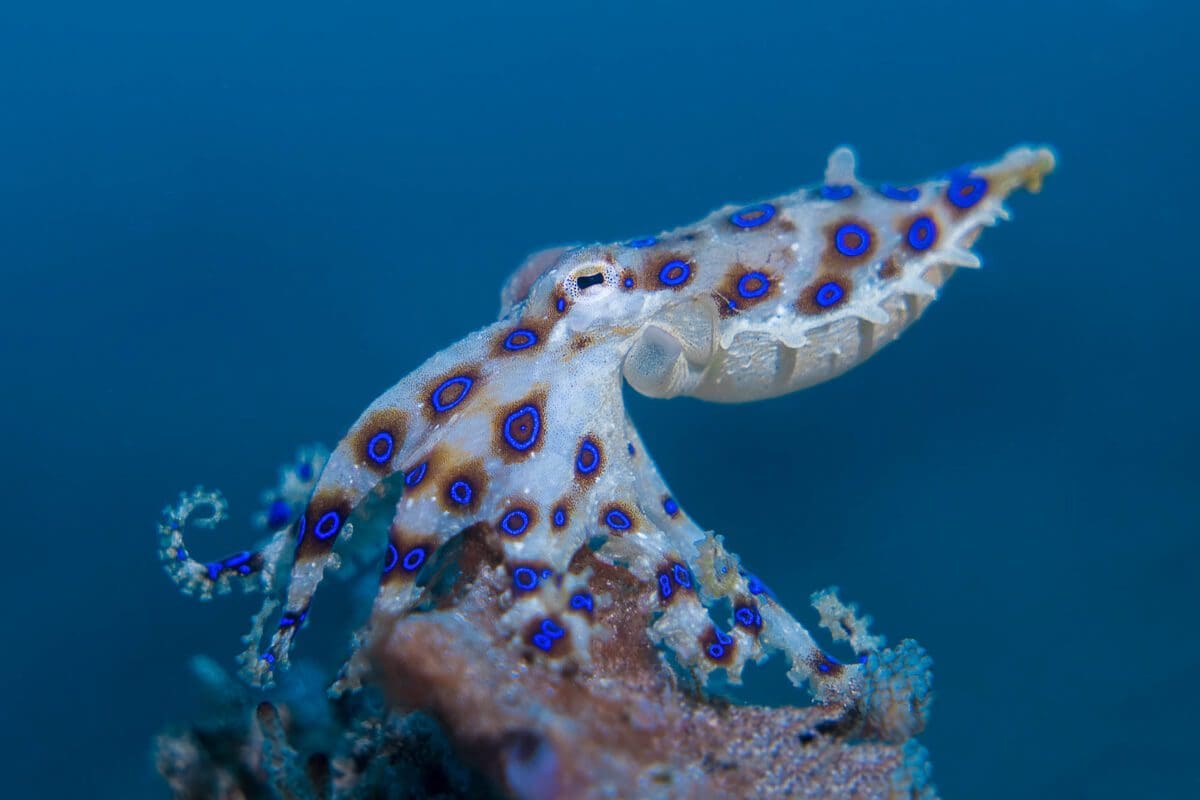
Rhinopias Scorpionfish (Rhinopias frondosa)
The Rhinopias is a highly sought after critter by underwater photographers. This well camouflaged species is often found at our dive site “Nudi Falls” where it sits among the soft corals to which it matches its coloration. The soft corals also make a stunning backdrop for images.
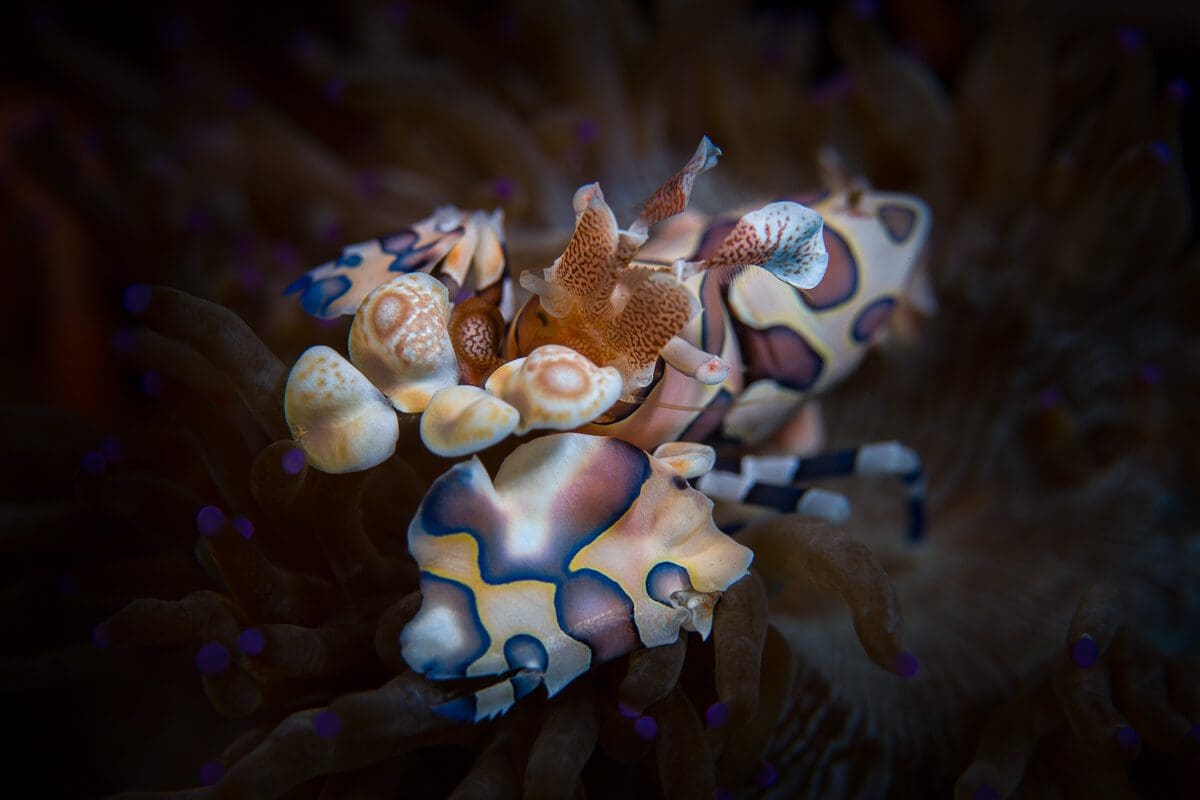
Harlequin Shrimp (Hymenocera picta)
Did you know that when you are muck diving in Lembeh it can often be the case that the number and diversity of crustaceans (shrimps, crabs, lobsters) can often outweigh the diversity of reef fish? Out of all of the crustaceans that we see on a daily basis., the harlequin shrimp is one of the most distinct in appearance. Its body is covered in brown-red blotches which are outlined in blue. Despite their attractive looks, harlequin shrimp are formidable, burrow dwelling carnivores. Working in pairs they hunt sea stars on which they feed. The harlequin shrimp pair use their pincer-like claws to “amputate” an arm from the sea star which they will then take back to their burrow to feast on.
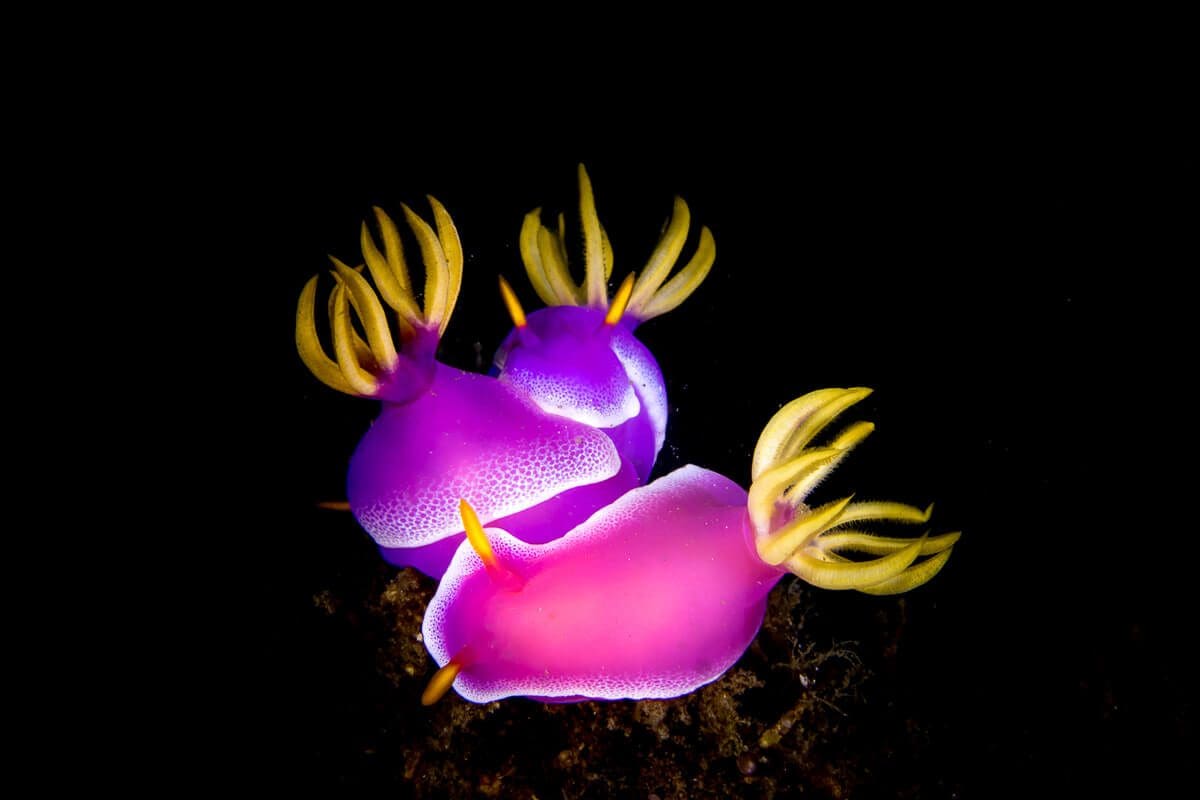
Nudibranch (multiple species)
If nudibranch are the “jewels of the sea” then the Lembeh Strait is a treasure trove. You’ll find a plethora of nudibranch species across all of our dive sites. These colorful and slow-moving critters make wonderful underwater photography subjects and our Lembeh Resort Dive Guides are experts at identifying the numerous species which we find here in Lembeh.
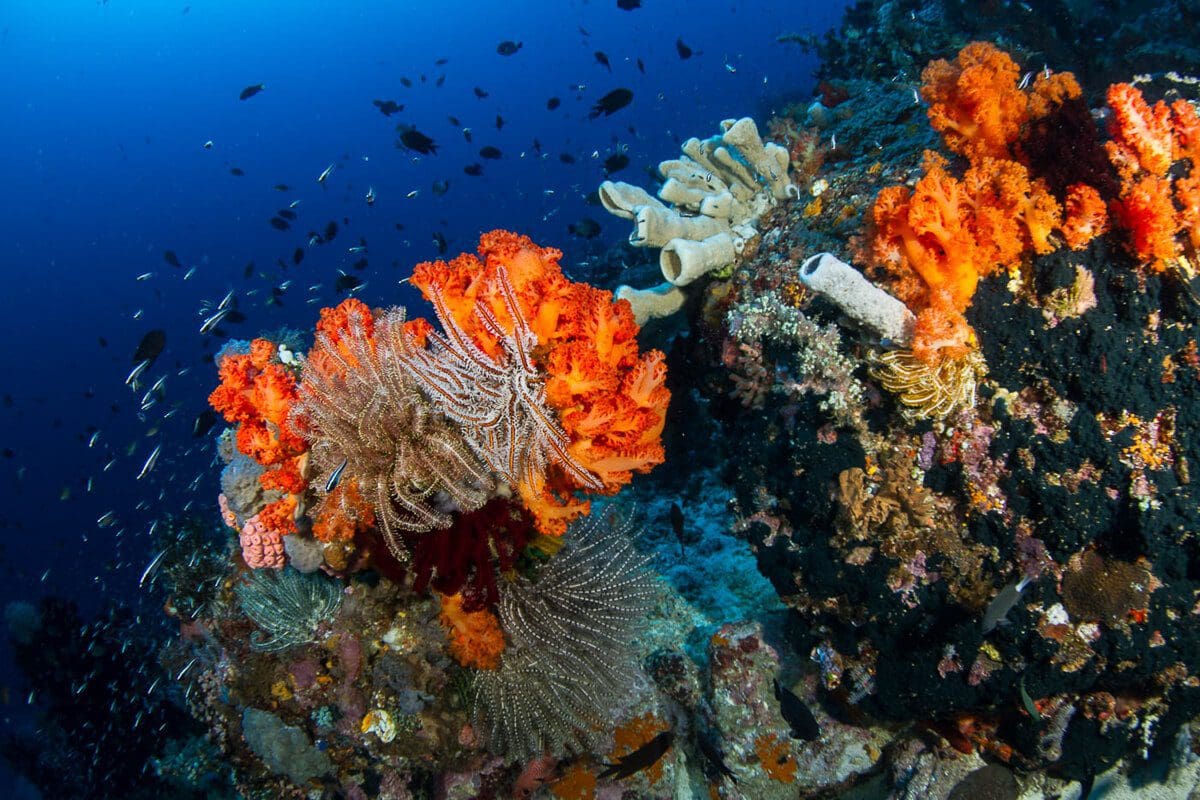
Explore Colorful Reefs and Book Your Next Diving Adventure
If you prefer reef diving over muck diving, you’re in for a treat! Lembeh Island’s north and east coasts boast stunning coral reefs brimming with vibrant colors and abundant marine life. Additionally, we offer day trips to the captivating reefs around Bangka Island.
Discover Lembeh Resort Rates and Plan Your Diving Holiday
Are you planning your next diving holiday in Indonesia? Lembeh Resort offers an exceptional combination of world-class dive sites, luxurious accommodations, exquisite dining, and exclusive service. Visit our website to explore Lembeh Resort rates and find the perfect package for your unforgettable dive adventure.
Contact us at reservations@LembehResort.com for more information or to make your reservation.


